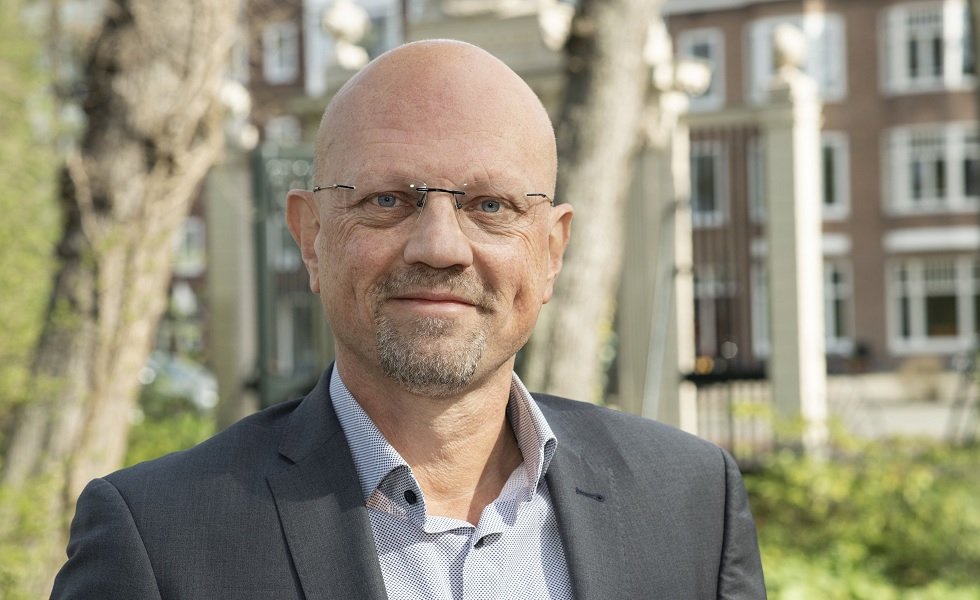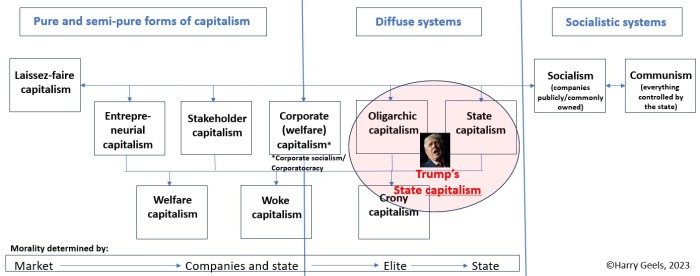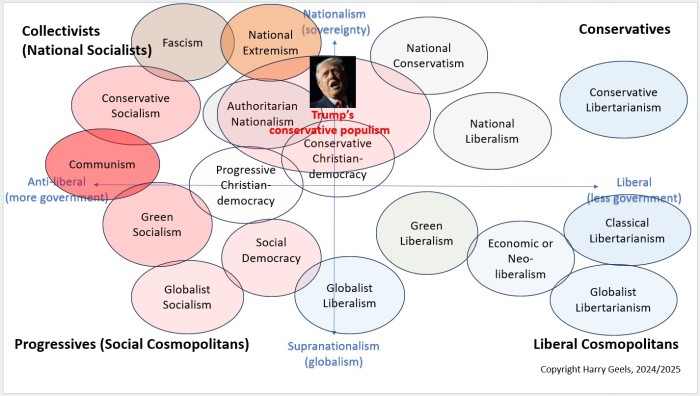Harry Geels: Trump, the ‘capitalist’ who is abolishing capitalism
Harry Geels: Trump, the ‘capitalist’ who is abolishing capitalism

This column was originally written in Dutch. This is an English translation.
By Harry Geels
Trump likes to present himself as a champion of the free market. But behind that façade of entrepreneurship lies a paradox: namely, subordinating the market to the nation and the nation to his own political projects.
Trump's economic policy is steeped in nationalism. Under the slogan “America First,” he imposed high import tariffs. Ostensibly to protect American jobs, but in reality as a tool to exert geopolitical pressure. Companies were encouraged to bring their production back to the US, often with tax breaks or under threat of new levies. The tariffs also serve to reduce a large trade imbalance – the chronic deficit that the US has with most of its major trading partners.
His dealings with Big Tech also fit this pattern. Trump regularly seeks cooperation with large technology companies such as Meta, Microsoft, Google, and Intel to ensure American dominance in artificial intelligence, chips, and defense technology. It is not a free market, but a strategic alliance between the state and business, in which political and economic interests coincide. The US government even actively interferes with non-American companies such as ASML.
In addition, the US government invests, either directly or through fiscal incentives, in “strategic sectors” such as energy, defense, and semiconductors. Recently, it even acquired a stake in Intel. Companies that support Trump's policies can count on support or preferential treatment. Those that do not run the risk of being publicly attacked. This changes the nature of the economic system: entrepreneurship becomes a patriotic duty and is no longer a free choice.
The new economic order
In classical capitalism, as Milton Friedman and Friedrich Hayek saw it, the free market guarantees that competition produces the most efficient outcomes. The role of the state is limited: referee or market master. But in Trump's version, the state is a player, referee, and sponsor all at once. Companies no longer operate in a neutral market order, but in a political ecosystem in which the government determines which sectors are “strategic” and which are not. The result is a system that is somewhere between an oligarchy and state capitalism (see Figure 1).
Figure 1

Wall Street appears free, but is becoming increasingly dependent on government policy and trade protection. Listed companies move with the political winds and social issues. Their freedom is restricted by regulation and public pressure. Ironically, true free capitalism now exists mainly in private markets, private equity funds, and venture capitalists, where risk and entrepreneurship still exist without political oversight or public morality.
The ideological logic
This development is not a coincidence, but follows logically from Trump's political position, which I have previously called conservative populism. In my axis approach to political ideologies, Trump is at the intersection of Conservative Nationalism, Conservative Christianity, and National Authoritarianism (see Figure 2). The nationalist motive legitimizes protectionism and economic chauvinism, the Christian foundation provides a moral framework for economic choices, and the authoritarian element justifies direct state control.
Figure 2

The end of the free market and what that means for investors
The result is a form of “capitalism” that has lost its free market. Competition is replaced by cooperation under the state banner, market freedom by national duty. Trump likes to set himself apart from the “globalists.” He once said, “They think it's okay when a company closes its doors and opens up in Mexico or another country.” And also: ‘This wave of globalization has wiped out our middle class.’ But while he claims to be saving capitalism from the globalist elites, he himself is forming a new elite by mixing politics and big business.
How ironic. Trump, who made his fortune as an entrepreneur and self-proclaimed capitalist, is building a system that no longer even deserves the name capitalism. Investing has become more than ever a political affair. Those who still cheer for the real free market seek refuge in private markets. Those who remain active on the stock market must quietly acknowledge that they make money from political games, privileges, and state protection, just as they did in the days of the great colonial companies, from the East India Company to the Dutch East India Company.
This article contains the personal opinion of Harry Geels
